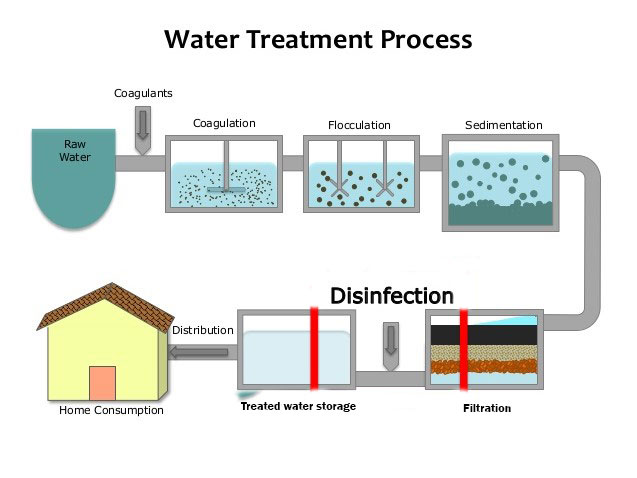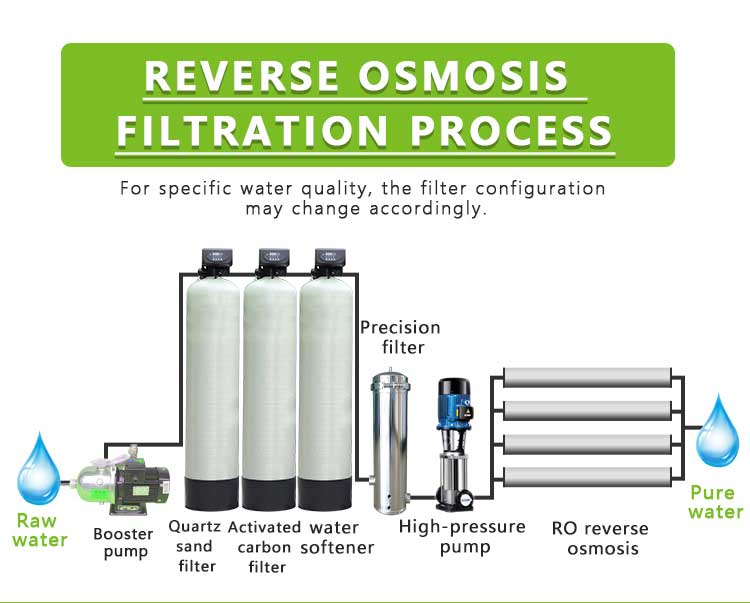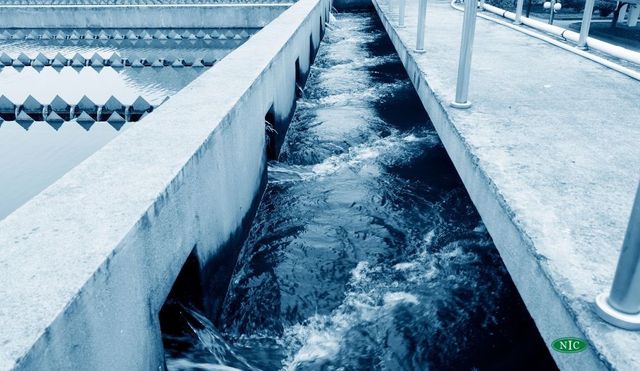Exploring Water Technology Startups: How They Reinvent Sustainable Solutions
Water Technology start-ups are becoming critical players in the mission for sustainable remedies to international water concerns. These companies utilize ingenious modern technologies to improve water efficiency and management. Their contributions attend to pressing challenges such as deficiency and contamination. Nonetheless, in spite of their potential, they face numerous challenges that might affect their success. Recognizing these characteristics clarifies the future of water sustainability and the role these start-ups may play in forming it.
The Value of Water Technology in Today's World
As global water scarcity increases, the significance of water Technology comes to be significantly noticeable. Water Technology plays a crucial role in dealing with the challenges presented by lessening fresh water sources and enhancing need. It incorporates a broad series of innovations, including innovative filtration systems, wastewater treatment modern technologies, and smart watering remedies. These developments not just boost the efficiency of water use however additionally advertise lasting practices across different fields, consisting of agriculture, industry, and metropolitan advancement.
The relevance of water Technology extends beyond source administration. It cultivates resilience against climate modification effects, such as floods and dry spells, by giving flexible options for water preservation and monitoring. In addition, it sustains public wellness by ensuring access to clean and safe drinking water. As the globe encounters expanding water-related obstacles, the assimilation of sophisticated water technologies is important for promoting lasting growth and safeguarding water schedule for future generations.
Ingenious Solutions From Water Technology Startups
While traditional approaches to water management have actually served their objective, a brand-new wave of water technology startups is transforming the industry with cutting-edge options (Water Technology Startups). These business take advantage of advanced technologies to address pressing water concerns, such as deficiency, contamination, and inefficient distribution. Lots of startups make use of expert system and machine learning to enhance water usage and anticipate demand, leading to more lasting practices
In addition, several companies concentrate on creating advanced purification systems that remove toxins and make water safe for usage. Others discover decentralized water treatment modern technologies, enabling communities to handle their water resources extra successfully. Furthermore, some start-ups are pioneering wise watering services that decrease water waste in agriculture, promoting ecological preservation.
Instance Studies: Successful Water Technology Startups
Numerous water Technology start-ups have actually become leaders in attending to worldwide water challenges through cutting-edge strategies. One significant example is Xylem, which concentrates on water analytics and clever framework to enhance water use and decrease waste. Their solutions have actually been carried out in different towns, demonstrating significant renovations in water monitoring performance.
One more successful start-up, No Mass Water, has developed solar-powered hydropanels that extract water vapor from the air, giving lasting alcohol consumption water in dry regions. Water Technology Startups. This Technology has actually been deployed in several countries, guaranteeing communities have accessibility to tidy water
Lastly, AquaVenture Holdings runs a diverse profile of water-as-a-service solutions, attending to water scarcity with desalination and wastewater treatment. Their projects have actually confirmed crucial in regions encountering severe water lacks, showcasing the possibility of innovative water innovations to develop long lasting, positive influences. These study highlight the transformative potential of startups in the water Technology market.
The Duty of Smart Technology in Water Administration
Smart Technology plays a crucial role in contemporary water monitoring by leveraging IoT applications to maximize resource usage. Data analytics boosts efficiency by offering actionable understandings, while remote surveillance services allow real-time oversight of water supply. Together, these advancements transform how water is handled, advertising sustainability and operational effectiveness.
IoT Applications in Water
As water deficiency and management difficulties magnify internationally, the combination of Web of Points (IoT) applications has emerged as an essential option in enhancing water resources. IoT Technology helps with real-time tracking and analysis of water systems, making it possible for extra reliable use and monitoring. Sensing units released in various water infrastructures can track quality, circulation prices, and leakage, providing beneficial information to stakeholders. This data empowers utilities and customers to make informed decisions, lowering waste and improving preservation initiatives. Additionally, smart watering systems utilize IoT to maximize water shipment for agriculture, ensuring that plants receive the correct amount of water at the correct time. Overall, IoT applications are changing conventional water monitoring methods, fostering sustainability and durability in water resource systems.
Information Analytics for Efficiency
Using data analytics is important for boosting effectiveness in water monitoring. Water Technology startups are increasingly using innovative analytics to enhance resource allowance and reduce waste. By assessing data from different sources, these startups can identify patterns and patterns that inform far better decision-making. Anticipating analytics can forecast water need, permitting utilities to adjust supply appropriately, thereby reducing excess and shortages. Additionally, real-time data handling makes it possible for the prompt discovery of leaks and ineffectiveness within distribution systems, substantially reducing operational expenses. Data-driven understandings encourage stakeholders to implement targeted conservation techniques, promoting sustainable techniques. Fundamentally, integrating information analytics right into water monitoring not just streamlines operations however likewise advertises long-lasting sustainability in water source usage.
Remote Monitoring Solutions
While typical water monitoring systems frequently struggle with inadequacies, remote monitoring remedies are transforming how water resources are handled. These ingenious modern technologies make it possible for real-time information collection and analysis, permitting stakeholders to check water top quality, circulation prices, and use patterns from afar. Making use of sensors and IoT devices, remote surveillance gives instant insights that assist in aggressive decision-making. This shift not only improves functional performance however likewise promotes sustainability by decreasing water waste and maximizing resource allocation. In addition, remote monitoring systems can recognize prospective concerns before they rise, basics thus decreasing the risk of contamination or facilities failing. As water Technology startups proceed to develop these options, the industry is positioned for substantial improvements in lasting water administration techniques.
Challenges Dealing With Water Technology Startups
Water Technology start-ups experience substantial challenges that can impede their development and success. Key problems consist of safeguarding sufficient financing, steering through complex regulative settings, and competing in a crowded market. These barriers call for strategic planning and advancement to get over.
Funding and Investment Hurdles
Although advancement in water Technology holds tremendous possibility for dealing with worldwide difficulties, start-ups in this field frequently deal with substantial financing and investment hurdles. Many investors continue to be mindful, regarding the water market as high-risk due to its complex governing landscape and lengthy advancement timelines. Furthermore, startups frequently struggle to show prompt earnings, which can prevent prospective backers. Conventional equity capital may overlook water technology, preferring industries with quicker returns, such as tech or customer products. Safeguarding gives and government funding can be affordable and time-consuming, further making complex financial security. As a result, many ingenious water Technology startups locate themselves in a ragged edge, needing creative financing methods to navigate these economic barriers and accomplish their goals
Regulative Compliance Issues
Guiding regulatory conformity is a significant obstacle for startups in the water Technology market, as they should grapple with a myriad of regional, nationwide, and worldwide laws. These regulations usually encompass water top quality criteria, environmental defense laws, and safety and security procedures, which can differ widely across territories. Startups might find it tough to navigate this complicated landscape, specifically when scaling operations or getting in new markets. The costs associated with compliance can be significant, diverting resources away from advancement and item growth. In addition, hold-ups in getting necessary permits or certifications can impede growth and market entry. A robust understanding of regulatory frameworks is vital for these start-ups to guarantee sustainable operations and stay clear of possible legal consequences.
Market Competition Characteristics
As water Technology startups arise in a competitive landscape, they encounter various obstacles that can hinder their development and development. Developed firms typically control the market, leveraging resources and experience to keep their settings. Startups fight with restricted funding, which limits r & d capacities, making it tough to contend on Technology and prices. Additionally, the swiftly progressing nature of water modern technologies demands continuous adjustment, more straining startup resources. Regulatory difficulties can make complex market access, as conformity with environmental standards is crucial yet expensive. Finally, drawing in knowledgeable ability in a specific niche area provides one more challenge, as bigger companies might use even more enticing work bundles. As a result, these variables produce a complex setting for water Technology start-ups intending to be successful.

The Future of Water Technology and Sustainability

The future of water Technology will likely concentrate on integrating man-made knowledge and information analytics to enhance water circulation and usage patterns. By taking advantage of real-time information, companies can predict lacks and manage resources much more successfully. In addition, sustainable practices will end up being a foundation of the sector, urging round economies where water is recycled and treated. Eventually, the ongoing development of water Technology will be crucial in creating durable facilities efficient in satisfying the obstacles postured by environment adjustment and population development while advertising ecological stewardship.
Frequently Asked Inquiries
What Are the Trick Metrics for Reviewing Water Technology Startups?
Secret metrics for evaluating water Technology start-ups consist of market capacity, scalability, customer acquisition costs, earnings development, technology innovation, governing compliance, environmental impact, affordable benefit, and team know-how, all essential for identifying lasting practicality and success.
How Can Individuals Assistance Water Technology Innovations?
Individuals can sustain water Technology advancements by buying start-ups, advocating for policy adjustments, joining area initiatives, sharing understanding concerning sustainable methods, and advertising awareness of water problems through social networks and neighborhood events.
What Are Typical Financing Sources for Water Tech Startups?
Usual financing sources for water technology startups consist of his comment is here venture funding, federal government gives, crowdfunding platforms, angel investors, and corporate collaborations. These financial methods aid assist in innovation and development in lasting water management modern technologies.

Which Industries Advantage Most From Water Technology Advancements?
Industries such as farming, energy, production, and municipal services profit significantly from water Technology developments. These technologies improve water efficiency, minimize costs, and advertise sustainable techniques, ultimately adding to environmental preservation and resource administration.
Are There Any Type Of Regulatory Difficulties Specific to Water Innovation?
Yes, water Technology encounters regulative obstacles, including conformity with ecological requirements, allowing processes, and varying local policies. These intricacies can prevent advancement and slow navigate to this site the application of brand-new technologies in the water administration sector.
Water Technology start-ups are arising as important gamers in the mission for lasting services to international water problems. As international water scarcity escalates, the significance of water Technology comes to be progressively noticeable. Others check out decentralized water therapy technologies, enabling areas to manage their water sources more efficiently. An additional effective startup, No Mass Water, has developed solar-powered hydropanels that extract water vapor from the air, supplying sustainable drinking water in arid areas. Their projects have shown crucial in areas encountering extreme water scarcities, showcasing the possibility of cutting-edge water modern technologies to develop long-term, favorable effects.